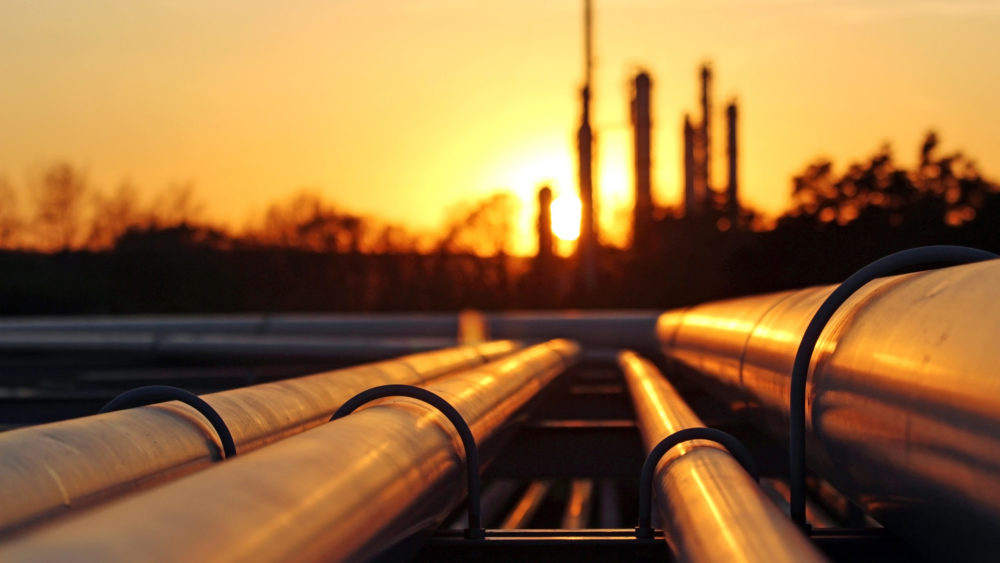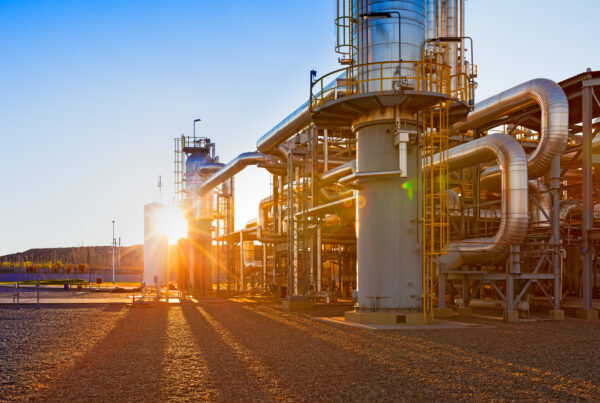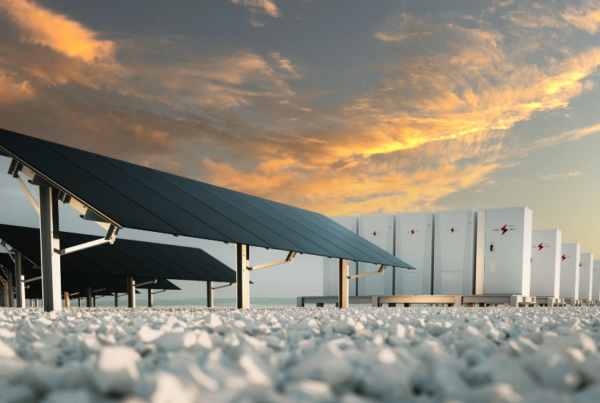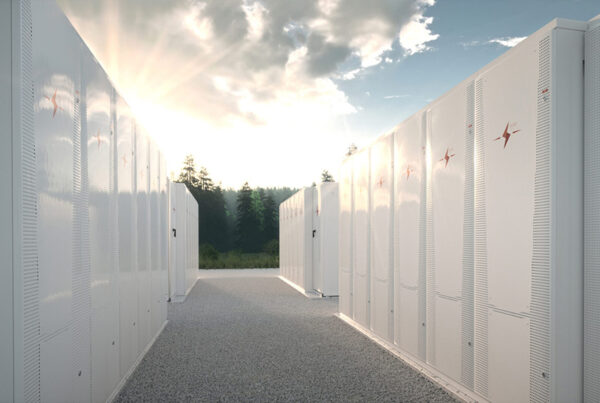
- A complete halt to Russian natural gas supply to Europe as soon as July 2022 would drive European gas prices 68% higher by this winter, latest analysis by Aurora Energy Research shows
- In the event of an immediate halt to Russian gas flows to Europe, it is likely that gas demand would drop significantly due to high prices and policy interventions to curb consumption
- A loss of Russian gas imports could be partially mitigated over time by investment in new LNG terminals, which would allow Europe to increase imports from other regions, particularly the US
- An immediate halt to Europe’s Russian gas supply would feed through to higher power prices across the continent. Aurora expects that wholesale power prices in Great Britain would be 38% higher on average in 2022-2027 than under a scenario in which Russian gas flows continue
Russian gas flows to Europe have dropped in recent months, with the potential for a complete halt looming. Daily Russian supply averaged less than 180 mcm/d in June, down 220 mcm/d from the same period last year, with supply to Germany, France, Italy, and Slovakia the latest to be cut. Flows through the Nord Stream 1 pipeline, which usually supplies more than 10% of European gas demand, dropped to 40% of its capacity earlier this month. But despite these actions, Russian supply continues to meet over 50% of natural gas demand in several European countries.
With further supply cuts possible, Aurora Energy Research has analysed the impact of two scenarios on European energy markets. The first scenario analyses the impact of a complete and permanent halt to Russian gas deliveries to Europe in July 2022. Aurora’s second scenario models the impact of a ‘managed phaseout’ of Europe’s Russian gas imports until 2026, driven by policy intervention and investments.
In the case of an ‘immediate halt’, Aurora expects that European gas markets would become extremely tight, driving prices up sharply. The TTF1 would rise by 68% by November 2022, compared to its June 2022 average, the analysis shows. Price increases would be steepest in the immediate aftermath of the supply cut, with the TTF forecast to rise by 45% month on month in July. Markets would then stabilise over the summer, before another sharp month-on-month increase in November as demand for gas-fired heating rises.2
A combination of supply-side diversification and a rapid and sustained reduction in demand would be needed to balance markets and curb further price rises under the ‘immediate halt’ scenario. Several European countries would delay coal and nuclear plant closures to minimise gas demand for power generation and the sharp rise in prices would prompt industrial gas consumers to switch to other fuels, or curb output. The scenario could also see household energy bills rise in places where measures to limit costs for residential consumers do not exist. Aurora estimates that the UK energy price cap for winter 2022-23 would rise to £3,100 for the average household.3
In the longer term, natural gas demand would be reduced by accelerating investments in solar and wind generation, energy efficiency, home insulation, and electrification via heat pumps. Aurora forecasts that annual European gas demand would fall by 68 bcm/a, or 16%, by 2030 compared to a third scenario in which Russian flows continue.
Under the ‘managed phaseout’ scenario, in which Europe gradually reduces Russian gas imports until supply reaches a complete halt by the end of 2026, ambitious policy measures to reduce gas consumption, increase solar and wind capacity, and promote biomethane production would result in a 65 bcm/a decrease in annual natural gas demand by 2030, and a modest 7% rise in the annual average TTF price by 2027, compared to the ‘continued flows’ scenario.
Under both the ‘immediate halt’ and ‘managed phaseout’ scenarios, Aurora expects that Europe would increase Liquified Natural Gas (LNG) imports to replace lost Russian gas supply. The US would provide most of Europe’s additional seaborne LNG deliveries as the country’s export capacity is set to climb in the coming years. Great Britain would increase its LNG imports considerably, but infrastructure limitations would curb Britain’s ability to serve as a hub to supply Europe. Planned import terminal projects in mainland Europe – particularly Germany, Italy and the Netherlands – would instead be key to increasing LNG deliveries, with European regasification capacity forecast to rise by 106bcm, or 51%, between 2022 and 2030, under the ‘immediate halt’ scenario.
Supply tightness in European gas markets would cause power prices across the continent to rise, although accelerated fuel switching would mitigate increases. Aurora modelled the impact of the ‘immediate halt’ scenario on the Great Britain power market and found that annual average baseload prices would be 38% higher on average in 2022-2027 than prices in the ‘continued flows’ scenario. The increase reflects the market’s exposure to gas prices as a result of its forecast dependence on gas-fired generation to meet power demand through to 2027.
Gaetano Garfi, Senior Analyst at Aurora Energy Research commented:
“An immediate halt to Russian gas imports would put European supply at risk, particularly over the winter in countries with limited direct access to non-Russian gas. Effective policy intervention will be needed to minimise the financial and social costs of the substantial demand side response required to cope with these restrictions. Campaigns to reduce household heating demand could help ease the impact of gas supply shortages in the industrial sector.”
Anise Ganbold, Global Energy Markets Lead at Aurora Energy Research commented:
“We expect an immediate drop in Russian gas supply will have to be countered by curbing industrial gas demand and increasing coal and nuclear plant availability. Additional supply, such as from LNG, would not be able to offset the loss in Russian gas right away due to bottlenecks in import capacity, but would improve the gas market balance by the mid-2020s.”
1 A monthly average of spot prices at the Dutch TTF hub, a virtual natural gas trading hub that serves as a benchmark for European gas markets
2 It should be noted that Aurora anticipates high levels of volatility around these forecasts
3 Not including the £400 discount to be applied to UK household energy bills from October, announced by the Chancellor of the Exchequer on 26 May 2022
– ENDS –
MEDIA CONTACT
Megan Tracey, European Press Officer
megan.tracey@auroraER.com | +44 (0)7810 817354
ABOUT AURORA
From its Oxford academic roots, Aurora Energy Research has grown to become the largest dedicated power market analytics company in Europe, providing data-driven intelligence for strategic decisions in the global energy transformation. We are a diverse team of more than 225 experts with vast energy, financial and consulting backgrounds, covering power, hydrogen, carbon and fossil commodities. We are active in Europe, Australia and the US, working with world-leading organisations to provide comprehensive market intelligence, bespoke analytic and advisory services, and cutting-edge software.






